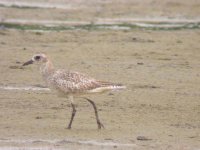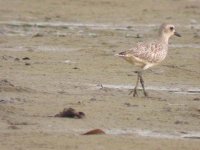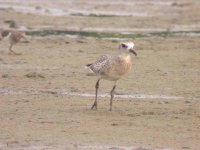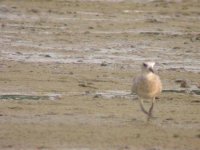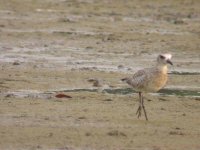Dan drough
Well-known member
Me again, this time with a possible juv or non-breeding Grey Plover - but why is it so brown? That puts a big question mark in my mind.
Taken on 25 Dec 2003 on a small creek at low tide in Bonny Island Nigeria (South end of the Niger River & South of Port Harcourt).
Taken on 25 Dec 2003 on a small creek at low tide in Bonny Island Nigeria (South end of the Niger River & South of Port Harcourt).




